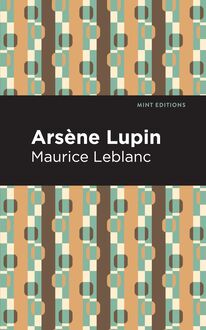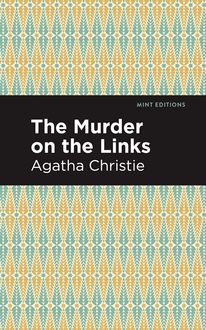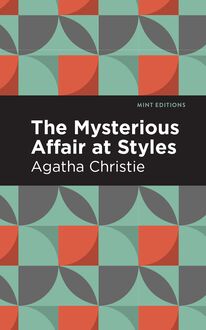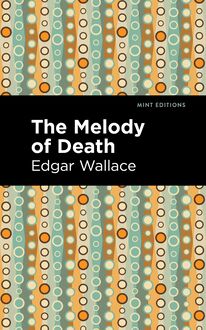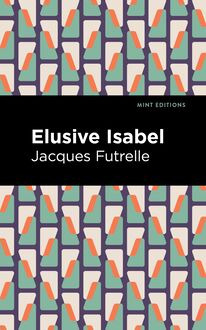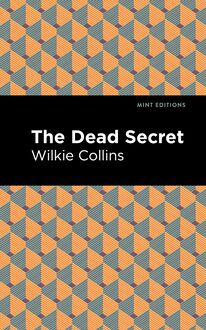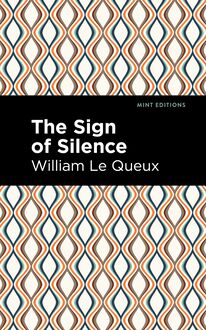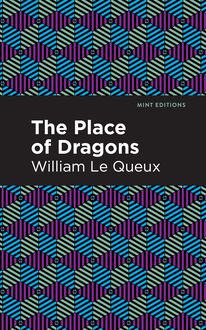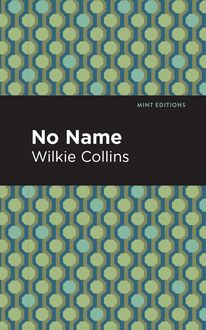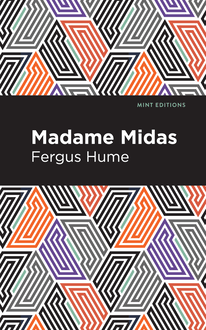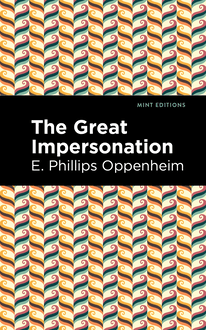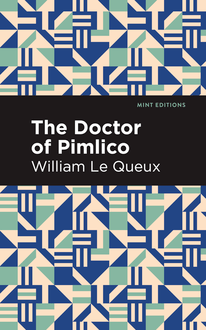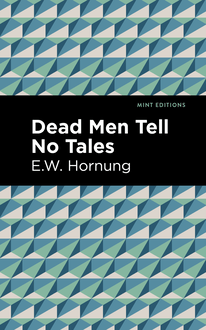-
 Univers
Univers
-
 Ebooks
Ebooks
-
 Livres audio
Livres audio
-
 Presse
Presse
-
 Podcasts
Podcasts
-
 BD
BD
-
 Documents
Documents
-
- Cours
- Révisions
- Ressources pédagogiques
- Sciences de l’éducation
- Manuels scolaires
- Langues
- Travaux de classe
- Annales de BEP
- Etudes supérieures
- Maternelle et primaire
- Fiches de lecture
- Orientation scolaire
- Méthodologie
- Corrigés de devoir
- Annales d’examens et concours
- Annales du bac
- Annales du brevet
- Rapports de stage
La lecture à portée de main
Vous pourrez modifier la taille du texte de cet ouvrage
Découvre YouScribe en t'inscrivant gratuitement
Je m'inscrisDécouvre YouScribe en t'inscrivant gratuitement
Je m'inscrisEn savoir plus
Vous pourrez modifier la taille du texte de cet ouvrage
En savoir plus

Description
The Seven Secrets (1903) is a mystery novel by Anglo-French writer William Le Queux. Published at the height of Le Queux’s career as a leading author of popular thrillers, The Seven Secrets is a story of mystery, murder, and amateur sleuthing. Using his own research and experience as a journalist and adventurer, Le Queux crafts an accessible, entertaining tale for readers in search of a literary escape. Known for his works of fiction and nonfiction on the possibility of Germany invading Britain—a paranoia common in the early twentieth century—William Le Queux also wrote dozens of thrillers and adventure novels for a dedicated public audience. Although critical acclaim eluded him, popular success made him one of England’s bestselling writers. In The Seven Secrets, a young English doctor named Ralph Boyd is left in charge of his practice due to the sudden unavailability of its chief surgeon. Hoping for an uneventful evening, he receives an emergency call to a home in Kew Gardens. Quickly recognizing the address as the mansion where his fiancée Ethelwynn Mivart lives with her sister and her husband, Boyd fears the worst. When he arrives, he discovers Mr. Courtenay stabbed to death in his own bed, all the doors and windows closed and locked, every servant gone home, and his fiancée and her sister missing. The next morning, as news of the scandalous occurrence begins to spread, Doctor Boyd contacts his friend Ambler Jevons, a merchant by day and skilled detective by night whose services have been used by everyone from local police to the investigators of Scotland Yard. Together, the two amateur sleuths uncover a trail of secrets that will plunge their lives—and the lives of their loved ones—into unimaginable danger. With a beautifully designed cover and professionally typeset manuscript, this edition of William Le Queux’s The Seven Secrets is a classic mystery novel reimagined for modern readers.
Sujets
Informations
| Publié par | Mint Editions |
| Date de parution | 31 mai 2021 |
| Nombre de lectures | 0 |
| EAN13 | 9781513285962 |
| Langue | English |
Informations légales : prix de location à la page 0,0500€. Cette information est donnée uniquement à titre indicatif conformément à la législation en vigueur.
Extrait
The Seven Secrets
William Le Queux
The Seven Secrets was first published in 1903.
This edition published by Mint Editions 2021.
ISBN 9781513280943 | E-ISBN 9781513285962
Published by Mint Editions®
minteditionbooks .com
Publishing Director: Jennifer Newens
Design & Production: Rachel Lopez Metzger
Project Manager: Micaela Clark
Typesetting: Westchester Publishing Services
C ONTENTS I. I NTRODUCES A MBLER J EVONS II. “A V ERY U GLY S ECRET ” III. T HE C OURTENAYS IV. A N IGHT C ALL V. D ISCLOSES A M YSTERY VI. I N W HICH I M AKE A D ISCOVERY VII. T HE M AN S HORT AND H IS S TORY VIII. A MBLER J EVONS IS I NQUISITIVE IX. S HADOWS X. W HICH P UZZLES THE D OCTORS XI. C ONCERNS M Y P RIVATE A FFAIRS XII. I R ECEIVE A V ISITOR XIII. M Y L OVE XIV. I S D ISTINCTLY C URIOUS XV. I AM C ALLED FOR C ONSULTATION XVI. R EVEALS AN A STOUNDING F ACT XVII. D ISCUSSES S EVERAL M ATTERS XVIII. W ORDS OF THE D EAD XIX. J EVONS G ROWS M YSTERIOUS XX. M Y N EW P ATIENT XXI. W OMAN ’ S W ILES XXII. A M ESSAGE XXIII. T HE M YSTERY OF M ARY XXIV. E THELWYNN IS S ILENT XXV. F ORMS A B EWILDERING E NIGMA XXVI. A MBLER J EVONS IS B USY XXVII. M R . L ANE ’ S R OMANCE XXVIII. “P OOR M RS . C OURTENAY ” XXIX. T HE P OLICE ARE AT F AULT XXX. S IR B ERNARD ’ S D ECISION XXXI. C ONTAINS THE P LAIN T RUTH
I
I NTRODUCES A MBLER J EVONS
“Ah! You don’t take the matter at all seriously!” I observed, a trifle annoyed.
“Why should I?” asked my friend, Ambler Jevons, with a deep pull at his well-coloured briar. “What you’ve told me shows quite plainly that you have in the first place viewed one little circumstance with suspicion, then brooded over it until it has become magnified and now occupies your whole mind. Take my advice, old chap, and think nothing more about it. Why should you make yourself miserable for no earthly reason? You’re a rising man—hard up like most of us—but under old Eyton’s wing you’ve got a brilliant future before you. Unlike myself, a mere nobody, struggling against the tide of adversity, you’re already a long way up the medical ladder. If you climb straight you’ll end with an appointment of Physician-in-Ordinary and a knighthood thrown in as makeweight. Old Macalister used to prophesy it, you remember, when we were up at Edinburgh. Therefore, I can’t, for the life of me, discover any cause why you should allow yourself to have these touches of the blues—unless it’s liver, or some other internal organ about which you know a lot more than I do. Why, man, you’ve got the whole world before you, and as for Ethelwynn—”
“Ethelwynn!” I exclaimed, starting up from my chair. “Leave her out of the question! We need not discuss her,” and I walked to the mantelshelf to light a fresh cigarette.
“As you wish, my dear fellow,” said my merry, easy-going friend. “I merely wish to point out the utter folly of all this suspicion.”
“I don’t suspect her,” I snapped.
“I didn’t suggest that.” Then, after a pause during which he smoked on vigorously, he suddenly asked, “Well now, be frank, Ralph, whom do you really suspect?”
I was silent. Truth to tell, his question entirely nonplussed me. I had suspicions—distinct suspicions—that certain persons surrounding me were acting in accord towards some sinister end, but which of those persons were culpable I certainly could not determine. It was that very circumstance which was puzzling me to the point of distraction.
“Ah!” I replied. “That’s the worst of it. I know that the whole affair seems quite absurd, but I must admit that I can’t fix suspicion upon anyone in particular.”
Jevons laughed outright.
“In that case, my dear Boyd, you ought really to see the folly of the thing.”
“Perhaps I ought, but I don’t,” I answered, facing him with my back to the fire. “To you, my most intimate friend, I’ve explained, in strictest confidence, the matter which is puzzling me. I live in hourly dread of some catastrophe the nature of which I’m utterly at a loss to determine. Can you define intuition?”
My question held him in pensive silence. His manner changed as he looked me straight in the face. Unlike his usual careless self—for his was a curious character of the semi-Bohemian order and Savage Club type—he grew serious and thoughtful, regarding me with critical gaze after removing his pipe from his lips.
“Well,” he exclaimed at last. “I’ll tell you what it is, Boyd. This intuition, or whatever you may call it, is an infernally bad thing for you. I’m your friend—one of your best and most devoted friends, old chap—and if there’s anything in it, I’ll render you whatever help I can.”
“Thank you, Ambler,” I said gratefully, taking his hand. “I have told you all this to-night in order to enlist your sympathy, although I scarcely liked to ask your aid. Your life is a busy one—busier even than my own, perhaps—and you have no desire to be bothered with my personal affairs.”
“On the contrary, old fellow,” he said. “Remember that in mystery I’m in my element.”
“I know,” I replied. “But at present there is no mystery—only suspicion.”
What Ambler Jevons had asserted was a fact. He was an investigator of mysteries, making it his hobby just as other men take to collecting curios or pictures. About his personal appearance there was nothing very remarkable. When pre-occupied he had an abrupt, rather brusque manner, but at all other times he was a very easy-going man of the world, possessor of an ample income left him by his aunt, and this he augmented by carrying on, in partnership with an elder man, a profitable tea-blending business in Mark Lane.
He had entered the tea trade not because of necessity, but because he considered it a bad thing for a man to lead an idle life. Nevertheless, the chief object of his existence had always seemed to be the unravelling of mysteries of police and crime. Surely few men, even those professional investigators at Scotland Yard, held such a record of successes. He was a born detective, with a keen scent for clues, an ingenuity that was marvellous, and a patience and endurance that were inexhaustible. At Scotland Yard the name of Ambler Jevons had for several years been synonymous with all that is clever and astute in the art of detecting crime.
To be a good criminal investigator a man must be born such. He must be physically strong; he must be untiring in his search after truth; he must be able to scent a mystery as a hound does a fox, to follow up the trail with energy unflagging, and seize opportunities without hesitation; he must possess a cool presence of mind, and above all be able to calmly distinguish the facts which are of importance in the strengthening of the clue from those that are merely superfluous. All these, besides other qualities, are necessary for the successful penetration of criminal mysteries; hence it is that the average amateur, who takes up the hobby without any natural instinct, is invariably a blunderer.
Ambler Jevons, blender of teas and investigator of mysteries, was lolling back in my armchair, his dreamy eyes half-closed, smoking on in silence.
Myself, I was thirty-three, and I fear not much of an ornament to the medical profession. True, at Edinburgh I had taken my M.B. and C.M. with highest honours, and three years later had graduated M.D., but my friends thought a good deal more of my success than I did, for they overlooked my shortcomings and magnified my talents.
I suppose it was because my father had represented a county constituency in the House of Commons, and therefore I possessed that very useful advantage which is vaguely termed family influence, that I had been appointed assistant physician at Guy’s. My own practice was very small, therefore I devilled, as the lawyers would term it, for my chief, Sir Bernard Eyton, knight, the consulting physician to my hospital.
Sir Bernard, whom all the smart world of London knew as the first specialist in nervous disorders, had his professional headquarters in Harley Street, but lived down at Hove, in order to avoid night work or the calls which Society made upon him. I lived a stone’s-throw away from his house in Harley Street, just round the corner in Harley Place, and it was my duty to take charge of his extensive practice during his absence at night or while on holidays.
I must here declare that my own position was not at all disagreeable. True, I sometimes had night work, which is never very pleasant, but being one of the evils of the life of every medical man he accepts it as such. I had very comfortable bachelor quarters in an ancient and rather grimy house, with an old fashioned dark-panelled sitting-room, a dining-room, bedroom and dressing-room, and, save for the fact that I was compelled to be on duty after four o’clock, when Sir Bernard drove to Victoria Station, my time in the evening was very much my own.
Many a man would, I suppose, have envied me. It is not every day that a first-class physician requires an assistant, and certainly no man could have been more generous and kindly disposed than Sir Bernard himself, even though his character was something of the miser. Yet all of us find some petty shortcomings in the good things of this world, and I was no exception. Sometimes I grumbled, but generally, be it said, without much cause.
Truth to tell, a mysterious feeling of insecurity had been gradually creeping upon me through several months; indeed ever since I had returned from a holiday in Scotland in the spring. I could not define it, not really knowing what had excited the curious apprehensions within me. Nevertheless, I had that night told my secret to Ambler Jevons, who was often my visitor of an evening, and over our whiskies had asked his advice, with the unsatisfactory result which I have already written down.
II
“A V ERY U GLY S ECRET ”
The consulting-room in Harley Street, where Sir Bernard Eyton saw his patients and gathered in his guineas for his ill-scribbled prescriptions, differed little from a hundred others in the same se
-
 Univers
Univers
-
 Ebooks
Ebooks
-
 Livres audio
Livres audio
-
 Presse
Presse
-
 Podcasts
Podcasts
-
 BD
BD
-
 Documents
Documents
-
Jeunesse
-
Littérature
-
Ressources professionnelles
-
Santé et bien-être
-
Savoirs
-
Education
-
Loisirs et hobbies
-
Art, musique et cinéma
-
Actualité et débat de société
-
Jeunesse
-
Littérature
-
Ressources professionnelles
-
Santé et bien-être
-
Savoirs
-
Education
-
Loisirs et hobbies
-
Art, musique et cinéma
-
Actualité et débat de société
-
Actualités
-
Lifestyle
-
Presse jeunesse
-
Presse professionnelle
-
Pratique
-
Presse sportive
-
Presse internationale
-
Culture & Médias
-
Action et Aventures
-
Science-fiction et Fantasy
-
Société
-
Jeunesse
-
Littérature
-
Ressources professionnelles
-
Santé et bien-être
-
Savoirs
-
Education
-
Loisirs et hobbies
-
Art, musique et cinéma
-
Actualité et débat de société
- Cours
- Révisions
- Ressources pédagogiques
- Sciences de l’éducation
- Manuels scolaires
- Langues
- Travaux de classe
- Annales de BEP
- Etudes supérieures
- Maternelle et primaire
- Fiches de lecture
- Orientation scolaire
- Méthodologie
- Corrigés de devoir
- Annales d’examens et concours
- Annales du bac
- Annales du brevet
- Rapports de stage
